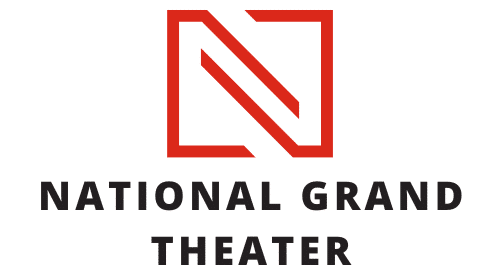The role of data analytics in personalized nutrition businesses

The landscape of nutrition and health wellness is undergoing a significant transformation. As the market for personalized nutrition gathers momentum, stakeholders across the healthcare and nutrition industry are leveraging data analytics to tailor dietary and health recommendations to the individual needs of consumers. In a world where one-size-fits-all dietary advice is becoming obsolete, personalized nutrition is emerging as a game-changer in how dietary supplements, meal plans, and overall nutritional guidance are delivered.
Understanding the unique biochemical and genetic makeup of individuals allows for a level of dietary customization that was once the stuff of science fiction. This seismic shift is not only a boon for consumers seeking more effective health and wellness strategies but also presents a lucrative avenue for businesses in the nutrition market. With the advent of machine learning and artificial intelligence, the capacity to analyze vast amounts of health data has become a cornerstone of the nutrition business, leading to innovative solutions that promise to alter our approach to health and diet forever.
A voir aussi : The rise of customized beauty tech in the cosmetic industry
In this article, we delve deep into how data analytics is reshaping the personalized nutrition landscape, highlighting its benefits, challenges, and the opportunities it creates for businesses in this evolving domain.
The Rise of Personalized Nutrition
Gone are the days when dietary advice was dispensed with a broad brush. Today, the idea of personalised nutrition is taking root, thanks to a growing body of scholarly evidence emphasizing the importance of individual factors in diet and nutrition. Articles from PubMed and scholarly research on Google Scholar increasingly point to the significant role that genetics, environment, lifestyle, and personal preferences play in how our bodies respond to different foods and nutrients.
Dans le meme genre : The business benefits of cloud computing in it infrastructure
Personalized nutrition operates on the premise that by understanding these individual differences, it is possible to design diet plans that are more effective in achieving health and wellness goals. This is not just a fad or a marketing gimmick; controlled trials and peer-reviewed research are consistently underlining the efficacy of such personalized approaches.
As a result, the market size for personalized nutrition is expanding, with an ever-increasing number of consumers willing to invest in services that promise better health outcomes through customized dietary advice.
The Power of Data Analytics in Personalized Nutrition
At the core of any successful personalized nutrition business lies a robust data analytics framework. The ability to collect, process, and interpret diverse data sets is essential for creating individualized nutrition plans. Machine learning and artificial intelligence are particularly transformative in this regard, as they can identify patterns and correlations in data that would elude human analysis.
From wearable technology that tracks physiological responses to advanced genomic testing that unveils genetic predispositions, the data gathered provides invaluable insights. This information, when processed through sophisticated analytics platforms, can lead to highly personalized nutrition and lifestyle interventions that are more likely to result in positive behaviour change.
Data analytics also empowers nutrition businesses to continuously refine their offerings. By analyzing consumer feedback, dietary outcomes, and adherence rates, companies can enhance the effectiveness of their meal plans and supplementary products.
Challenges and Considerations
While the potential of data analytics in personalized nutrition is immense, there are several challenges to navigate. Crucially, the collection and use of personal health data raise significant privacy and ethical concerns. Nutrition businesses must ensure that they adhere to stringent data protection regulations, and that they maintain the trust of their customers by being transparent about how their data is used.
Another consideration is the accuracy and relevance of the data being analyzed. Given the global personalized nutrition market caters to a diverse clientele, cultural, regional, and individual dietary preferences must be accounted for to avoid misinterpretations that could lead to ineffective or inappropriate dietary recommendations.
Furthermore, ensuring accessibility to personalized nutrition services is vital for preventing the creation of a health divide where only those who can afford it benefit from such tailored advice.
Market Size and Business Opportunities
Despite the challenges, the global personalized nutrition market is poised for significant growth. As awareness of the benefits of personalized nutrition increases, the demand for such services is expected to rise, creating ample opportunities for innovative businesses.
Nutrition companies that successfully integrate data analytics into their service offerings can gain a competitive edge by providing superior value to their customers. Whether it’s through customized dietary supplements, tailor-made meal plans, or comprehensive health assessments, the possibilities are vast.
Moreover, the integration of data analytics enables businesses to scale their operations more effectively. By identifying market trends and consumer preferences, companies can make informed decisions about product development, marketing strategies, and customer engagement, driving growth in the nutrition market.
Conclusion
The confluence of data analytics and personalized nutrition is paving the way for a more nuanced and effective approach to health and diet. As individuals increasingly seek nutritional solutions that cater to their unique needs, businesses in the nutrition industry are presented with a golden opportunity to innovate and thrive. However, the path forward requires careful navigation of privacy concerns, data accuracy, and inclusivity.
Embracing data analytics not only enables personalized nutrition businesses to deliver bespoke dietary advice but also allows for continual improvement of their products and services. As the market size expands and the demand for personalized nutrition services grows, companies that prioritize data-driven insights will be well-positioned to lead the charge in this exciting frontier of health and wellness.
The role of data analytics in personalized nutrition businesses is thus clear: it is the engine driving the personalization of diet and health guidance. By harnessing the power of analytics, the nutrition industry can offer unparalleled value to consumers, leading to healthier lifestyles and a brighter future for the global health landscape.
